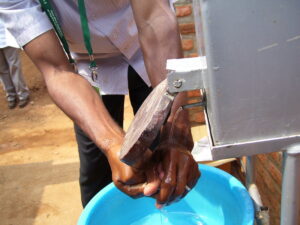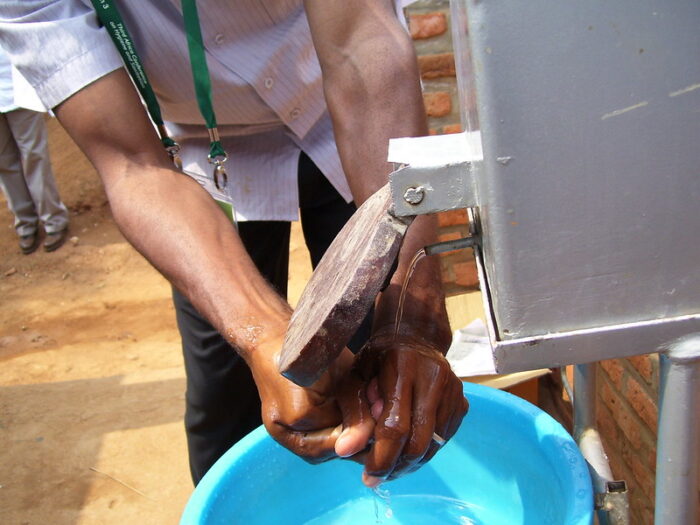By Amita Bhakta and Brian Reed

Why does handwashing matter for water utilities? Whilst we know that handwashing is vital for maintaining good hygiene, it goes on beyond the pipe in households, institutions and communities. We only use a very small amount of water to wash our hands, and therefore, it is not a water quantity issue. The water we use to wash our hands does not need to be as clean as drinking water, and so, it is not about water quality either. To mark Global Handwashing Day on 15th October 2023, we take a look beyond the pipe to highlight why handwashing should be a matter of concern for water utility managers to be thinking about.
One of the fundamental reasons for providing water supply is to ensure a healthy population. It is clear that water supply is vital for supporting the 2 billion people who still lack access to a handwashing facility with soap and water at home. However, when we dig deeper, simply providing water to communities does not address the wider challenges when it comes to handwashing. Whenever there is the spread of disease in a community with access to water supply, the chances are that people will likely assume that there is a problem with the water quality, and fingers will be pointed at the water utilities, where utility managers would be asked to take the blame. In reality however, it is not the water quality, but good handwashing practices that are key to reducing the transmission of infectious diseases. The benefits of water for handwashing can only be fully realised if there is adequate behaviour change. In Sinnar in Maharashtra, India, a handwashing programme led by the Center for Water and Sanitation (CWAS) at CEPT University was successful during and beyond the COVID-19 pandemic due to self-help groups leading the way in promoting good handwashing practices through one-to one discussions held near the handwashing facilities CWAS had installed, or by sharing posters through WhatsApp messages. In Myanmar, Save the Children’s interventions in the Kani township through peer-to-peer training events led to over 1200 children improving their handwashing habits as a result of engaging messages about the benefits of handwashing being shared by their peers.
Water utilities have much to learn this Global Handwashing Day. Handwashing is a fundamental medium through which people engage with water to stay healthy, yet, can only be successful through adequate behaviour change programmes. When we take a look at the bigger picture, in the face of global challenges such as climate change and water scarcity, utilities have the potential to apply and adapt behaviour change practices used for hand hygiene promotion to other aspects of their work. For us to be conserving water by taking showers instead of baths and turning off the taps, it’s time for water utilities to take lessons from changing hand hygiene behaviour, to ensure that they can continue to serve customers around the world long into the future.
